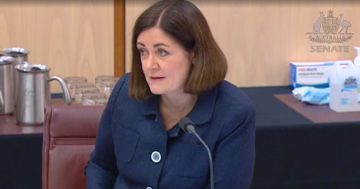
Prime Minister Anthony Albanese has vowed to cut HECS-HELP debts after the next election. Photo: Michelle Kroll.
Labor wants to lower annual student debt repayments for three million Australians, but it won’t do it until after the next federal election.
In a move the Opposition has already said it is unlikely to match, the Federal Government has promised to cut the tertiary student and apprentice burden, with a further 20 per cent cut off all HECS-HELP debts by the middle of next year.
Labor says the plan will wipe a total of about $16 billion in student debt.
The minimum repayment threshold for student loans would jump by $13,000 a year to allow graduates to start paying down their debts once they earned $67,000 instead of the current threshold of $54,000.
Anthony Albanese said his government will legislate to reduce the student debt burden by 1 June 2025.
“This will cut around $16 billion in debt, including all HELP, VET Student Loan, Australian Apprenticeship Support Loan and other income-contingent student support loan accounts that exist on 1 June next year,” the Prime Minister said.
“For someone with the average HELP debt of $27,600, they will see around $5520 wiped from their outstanding HELP loans next year.”
The Prime Minister said the initiative is aimed at encouraging more people to pursue higher education.
“The HECS scheme was never meant to be a lifetime of debt. It was meant to be a contribution back to education,” he said.
“We’re restoring equity there so that people will start to pay back once they earn $67,000 rather than $54,000.
“Taking 20 per cent off people’s debt that they owe will make a difference for cost of living, so that if you’re on $70,000, you’ll pay about $1300 less per year in repayments.”
Nationals leader David Littleproud has already said the Coalition would “struggle” to offer the same things to the holders of student loan debts.
“I just can’t see how we can pick winners to that scale of money and support a mechanism like this,” Mr Littleproud said.
“In the totality of this cost-of-living crisis, there are more pressing things about getting your energy bill down, and we can do that quickly with more gas and a long-term policy around energy.”
That sentiment was echoed by shadow science and arts minister Paul Fletcher, who described it as a “profoundly unfair” policy.
“People who have the benefit of a tertiary education will have much higher lifetime earnings than the average across the community, and therefore, it’s appropriate that they bear some of the cost of their education,” he said.
However, the Prime Minister said the unfair factor was that previous generations of Australians had no student debts at all.
“I’ll tell you what the fairness test fails is the fact that I got a free education, and for many, many people who have got this debt hanging over them, for many people the interest that they are paying on that debt is more than the original HECS payment,” Mr Albanese said.
Federal Education Minister Jason Clare described the promise as a “game-changer” for more than three million Australians with a student loan.
“By 1 June next year, we will wipe around a further $16 billion from all Australians with a student debt, including Australians who went to uni and vocational education,” Mr Clare said.
“This builds on our changes to make indexation fairer, and all up, this means we are wiping close to $20 billion in student debt.
“This is another significant reform that will help us build a better and fairer education system.”
The government will also introduce legislation to establish 100,000 fee-free TAFE places from 2027.
Unions have welcomed that move, saying that for Australians, training for jobs in industries like trades and nursing will provide relief worth thousands of dollars in course fees.
ACTU assistant secretary Liam O’Brien said legislating to make fee-free TAFE a permanent feature of Australia’s vocational education and training system will remove financial barriers that discourage people from up-skilling, especially in high-demand areas.
“Fee-free TAFE is making education more affordable and accessible, easing pressure on household budgets, and ensuring more young people have the financial freedom to pursue their dream careers,” he said.
Original Article published by Chris Johnson on Riotact.








